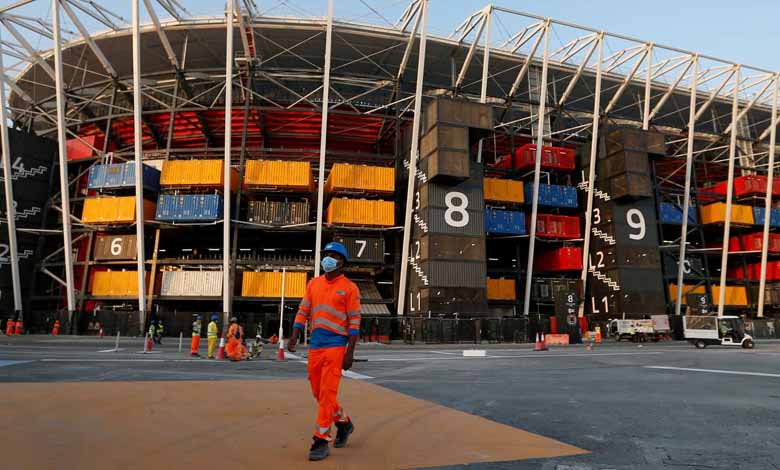Danish journalists union warns against travel to Qatar

The Danish Journalists Union has urged all Danish journalists not to travel to Qatar to cover next year’s World Cup, stressing that the Gulf emirate cannot be trusted, due to its practices against journalists and migrant workers alike.
According to the Morning Star, Alan Boy Thulstrup, vice president of the union, said: “I don’t trust Qatar”, he said. “I fear that journalists or sources critical of the Qatari government will disappear or be thrown into prison for a long time, and that they will not be treated well in prison”.
Boy Thulstrup said: “There is no point in Qatar pledging first that the press can work without hindrance and then arrest journalists”, he said, adding that his union has more than 18,000 members of journalists, who are feared to work or cover in Qatar.
The Danish Journalists Syndicate’s statement comes in response to the detention of two Norwegian journalists by Qatari security forces, and the removal of photos and videos they took inside a migrant workers’ camp, as they tried to document complaints about workers’ issues before the 2022 FIFA World Cup.
According to the Morning Star, the Qatari government not only banned journalists from doing their journalistic work, but also resorted to violence, accusing them of “trespassing on private property and filming without a permit”.
The two journalists arrested in Qatar returned to Norway on Wednesday, adding that although they received verbal permission to photograph, Qatari authorities seized their photographic equipment.
The British Guardian newspaper said in an investigation that migrant workers in Qatar continue to complain about the arbitrariness of companies that refuse to implement the new labor laws announced by Doha, in its response to the reports exposing its violations of human rights, but these laws remain only ink on paper.
“Over the next decade, the harsh conditions in which hundreds of thousands of migrant workers worked in extreme heat to implement Qatar’s vision for World Cup buildings, as well as investigations into forced labor conditions and modern slavery have been exposed, resulting in a huge number of worker deaths, sparking international outrage”.
“In an effort to appease growing international criticism, Qatar announced sweeping labor reforms in 2019”. “This included ending the Kafala system, which prohibits migrant workers from changing jobs or leaving the country without their employer’s permission, effectively trapping exploited workers”.
The newspaper said: “More than 40 migrant workers who spoke to the Guardian in Qatar in September and October this year say nothing has changed for them, and they feel nothing.”
It continued: “Despite the ILO’s claim that more than 200,000 workers have changed employers since the new laws were passed, The Guardian met only one worker – a young Kenyan – who managed to leave his job”.
Migrant Rights, a pro-migrant worker group across the Gulf, described the end of the Kafala as a “mirage”: Employers can easily prevent dissatisfied workers from leaving.
“The new minimum wage of 1,000 riyals per month, in addition to food, is being imposed on security guards who routinely work 12-hour shifts but do not receive mandatory overtime payments and receive very low wages, the newspaper noted”.
However, the new minimum wage set by the Qatari government, one of the richest countries in the world, is still worth £1 an hour, the newspaper reported.
“These low wages mean that workers often remain in Qatar for years, unable to afford to return home to their families”. A Nepalese worker confirmed that he had not seen his wife and child for five years.
Human rights groups warn that time is running out in Qatar to ensure that the new reforms actually make life better for migrant workers before the World Cup begins in November next year.












